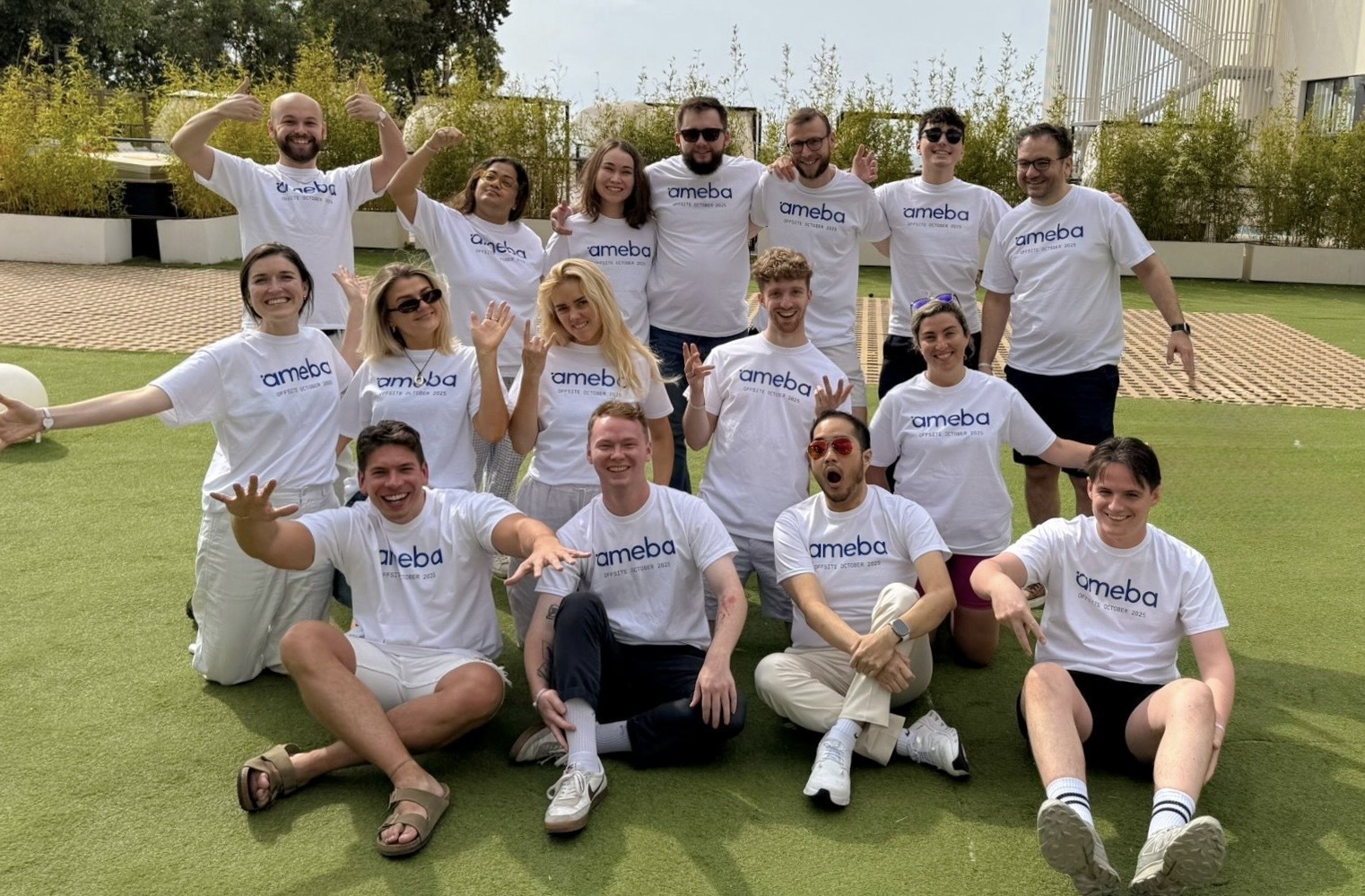



Why is Ameba specifically for the fashion and garment manufacturing industries? Do you work with other industries too?
We’ve heard that too many tools out there are generic and don’t work for sector-specific workflows. They offer untailored ‘AI agent’ support for supply chains that still requires manual intervention and sometimes raises more questions than answers. Based on firsthand operational experience and the input of our early co-development partners in the sector, we’ve created something that speaks your language and works seamlessly for your operations - whether you’re a fashion brand, garment manufacturer or clothing distributor/retailer. As we grow, we’ll expand our offering to other sectors with the same in-depth, user-first approach - so if you work in a different industry and are interested in our product, we’d still love to hear from you!
Can Ameba really help to make my operations more sustainable, or is that just greenwashing?
Ameba is first and foremost a tool aimed at improving transparency, efficiency and agility for supply chain teams - not a sustainability tool. For too long, sustainability has been presented as a cost for businesses - a tradeoff against commerciality and margin. Most solutions in the space are designed to monitor supplier standards and adherence, rather than drive action. Today, around 30% of clothing produced goes straight from brands to landfill, before ever reaching a customer. We believe that improving operational efficiency is one of the most effective levers when it comes to driving sustainability - and it also significantly improves the bottom line. Ameba unlocks data clarity and speed of decision-making, allowing brands to reduce overproduction by switching to practices such as lower volume, higher frequency ordering, and adapting to market signals on shorter timelines. As a result, Ameba can materially improve the sustainability of your operations by embedding more conscious practices into your day-to-day workflows.
Will Ameba integrate with my existing tech stack?
Yes. Ameba integrates seamlessly with your communication channels (such as email, WhatsApp or WeChat) and can find, structure and interpret information from attachments like Excel files, PDFs, JPEGs and more. Ameba can also push and pull data to/from your ERP and PLM systems - but you don’t need these systems in place to use Ameba and get value from our tool. We are building out our set of integrations to enable increasingly seamless onboarding, cutting out the lengthy customisation timelines you might be used to for new software implementation projects.
How accurate are the insights provided by Ameba?
All data points are accompanied by our “AI explainability” tooltip. This can also be thought of as a citation or anchor: a direct link that leads to the enterprise system, the messaging platform, or the specific email that was used as the source. It’s the key to avoiding hallucinations and reliability issues (your own data is the only source from which insights can be surfaced), and allows you and your co-workers to drill down into data contained in different systems without the need to manually roll them up yourselves.
How safe is my data with Ameba?
Ameba is fully SOC 2 and GDPR compliant. SOC 2 is the industry gold standard for managing data security. Any notifications, updates, or insights surfaced come solely from the specific and relevant threads or databases in your ecosystem, involving the contacts that you pre-selected when you first set up Ameba (the agents will not read your entire inbox, or combine your dataset with any others).
What makes Ameba different to all the other supply chain tools and AI startups I’ve seen out there?
Ameba is built by former operators, to address your actual most pressing pain points - based on firsthand experience. We know what it’s like to have tooling fatigue and a different system or communication channel for every part of your workflow. Ameba doesn’t ask you to change the way you currently interact with third parties or other internal teams. You can keep using the communication channels or systems you currently rely on for different stakeholders. Ameba just brings all that disparate, unstructured data together for when you - or anyone on your team - need the holistic, up-to-date picture. Ameba also provides proactive alerts, automated insights and end-to-end analytics on top, all without the manual data entry you’re stuck with today.
How does Ameba’s technology work?
Ameba leverages a range of AI models to interpret supply chain related communications and datasets, depending on the task at hand and what performs best in our benchmarks for that task. The underlying constant across our AI usage is our multi-step agents — they can take actions, explore ontology and its connections, read supplier emails, WhatsApps and attachments. Their goal is to transform customer's unstructured data into a clear view of the supply chain, while providing transparency around the conclusions they reach.

Ready to make your supply chain your winning edge?
We’re continually adding features and improving our platform. We’d love to hear your feedback.

